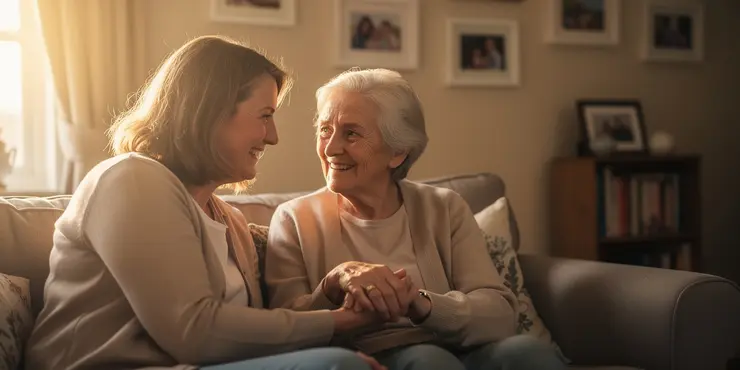
Find Help
More Items From Ergsy search
-
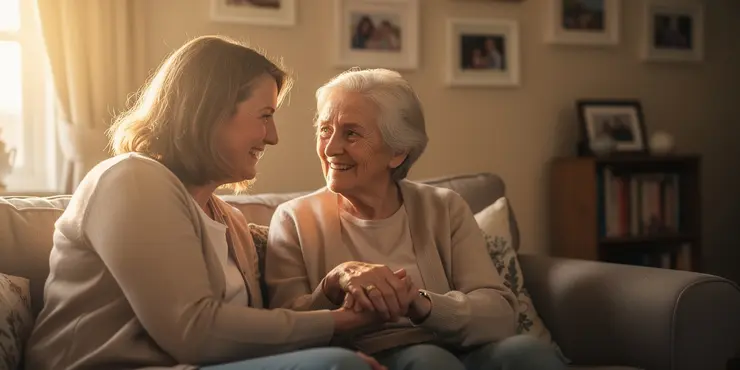
Are there any support groups for people with dementia in the UK?
Relevance: 100%
-
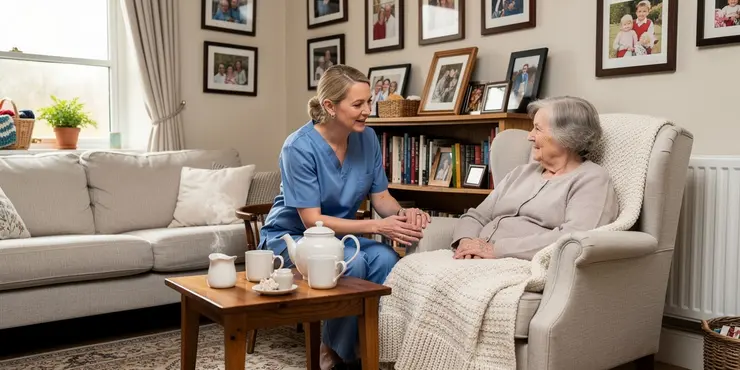
Can live-in care support individuals with dementia?
Relevance: 62%
-
Living with dementia | NHS
Relevance: 61%
-
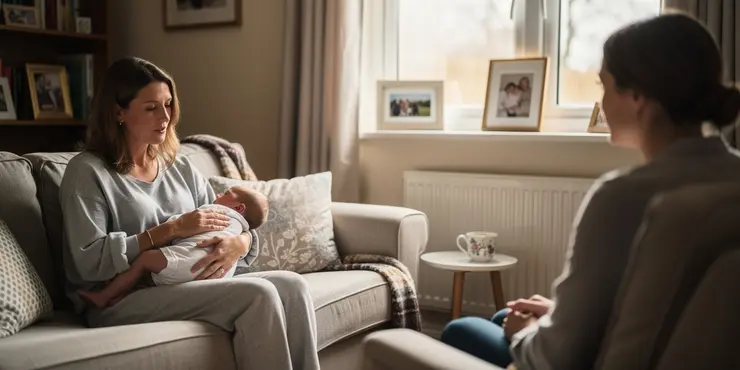
Are there support groups for postnatal depression?
Relevance: 58%
-
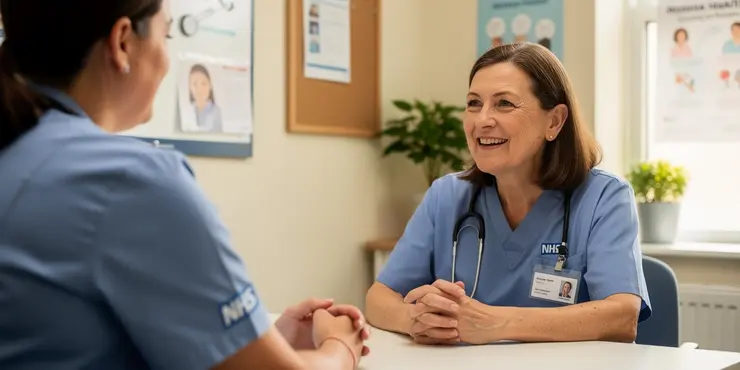
What is dementia?
Relevance: 58%
-
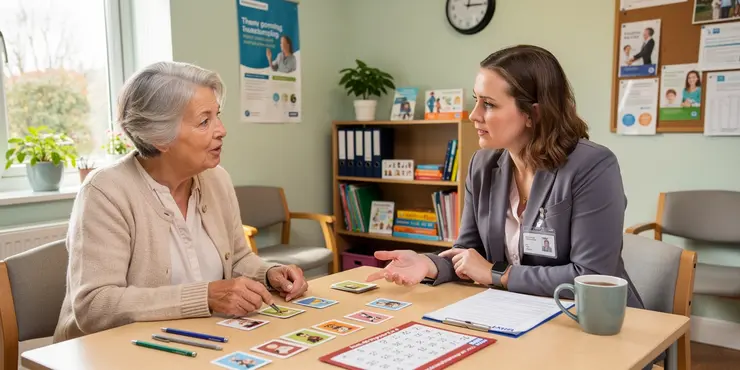
Is there a cure for dementia?
Relevance: 58%
-
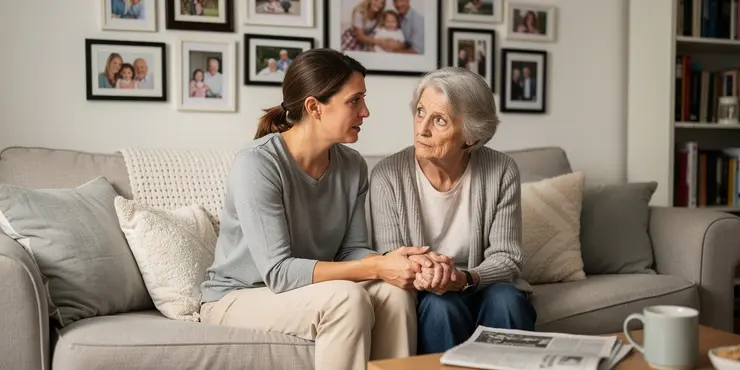
Can dementia affect younger people?
Relevance: 56%
-
Are there any support groups for people with dementia in the UK?
Relevance: 56%
-
Are there any support groups for people with dementia in the UK?
Relevance: 56%
-
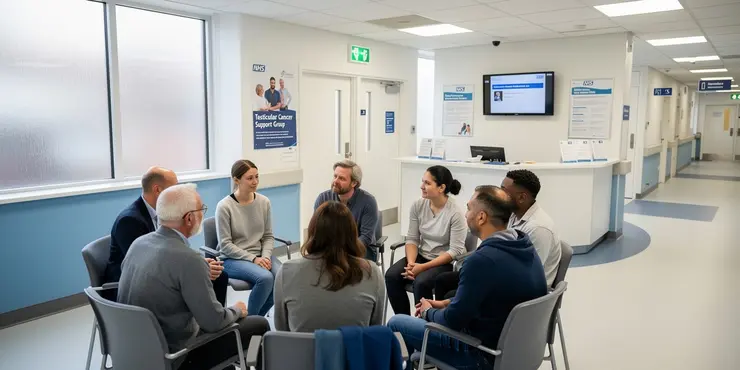
Are there support groups for those affected by testicular cancer?
Relevance: 53%
-
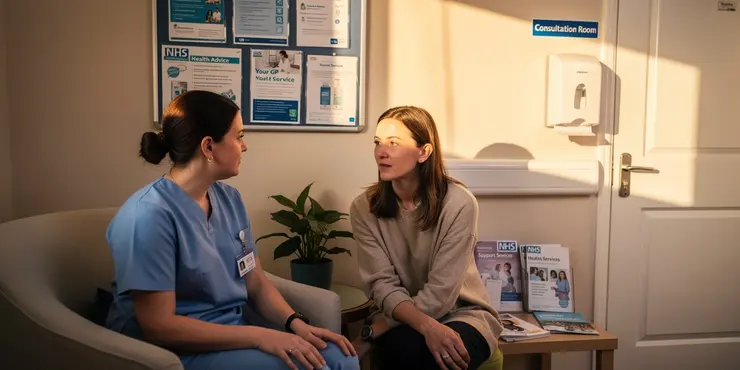
What are peer support groups for community helpers?
Relevance: 53%
-
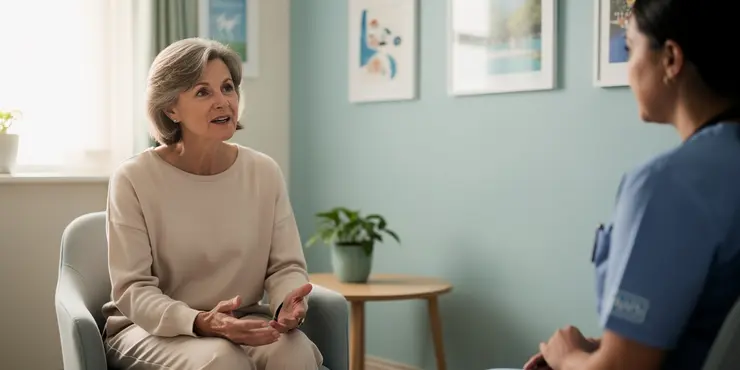
Early onset dementia | NHS
Relevance: 53%
-
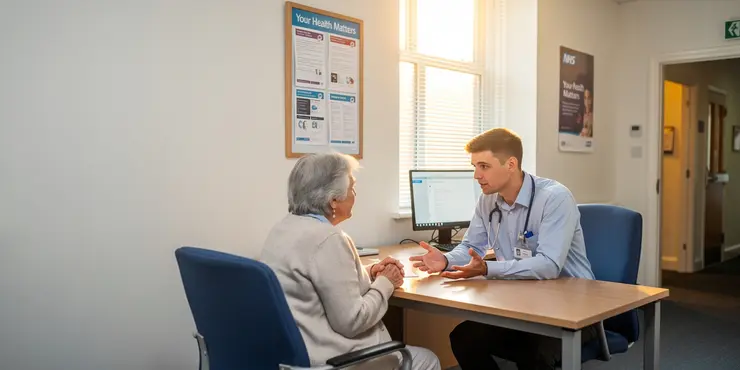
Dementia by Dr Alex Kakoullis, Coventry and Warwickshire Partnership NHS Trust
Relevance: 51%
-
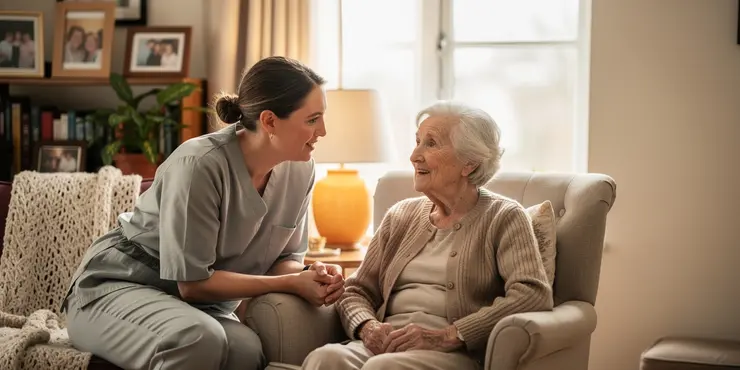
Dementia Care at Colten Care
Relevance: 50%
-
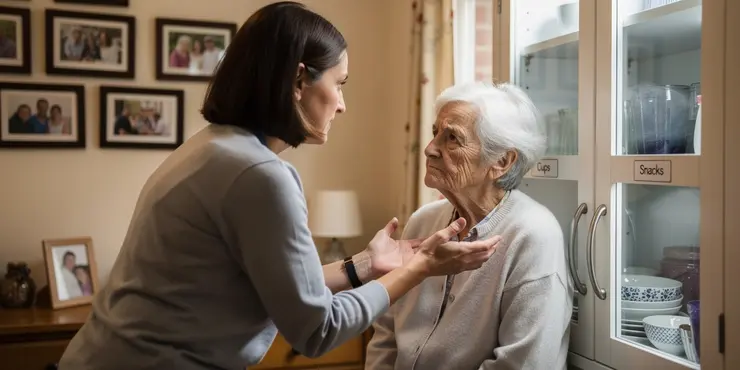
How can I support a loved one with dementia?
Relevance: 49%
-
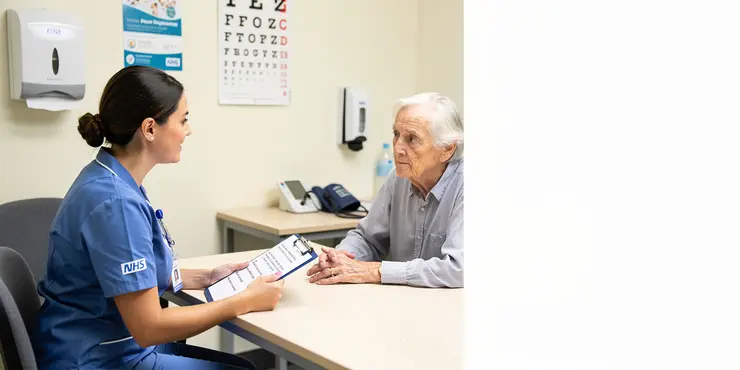
How is dementia diagnosed?
Relevance: 49%
-
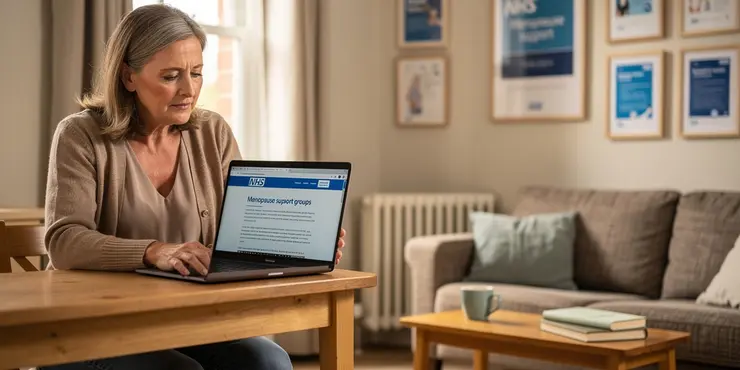
How can I find NHS-recommended menopause support groups online?
Relevance: 48%
-
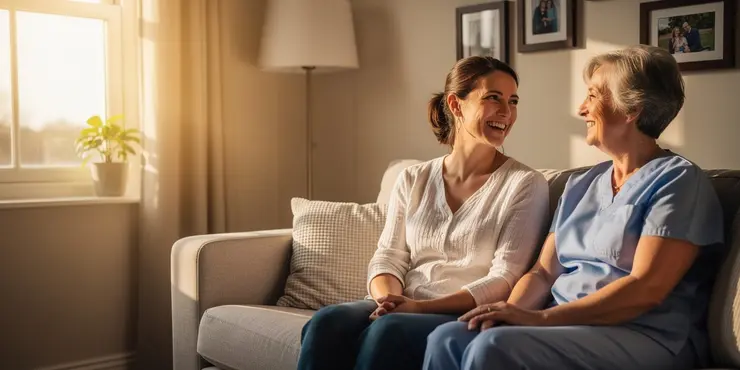
How can support groups benefit carers of Alzheimer's patients?
Relevance: 48%
-
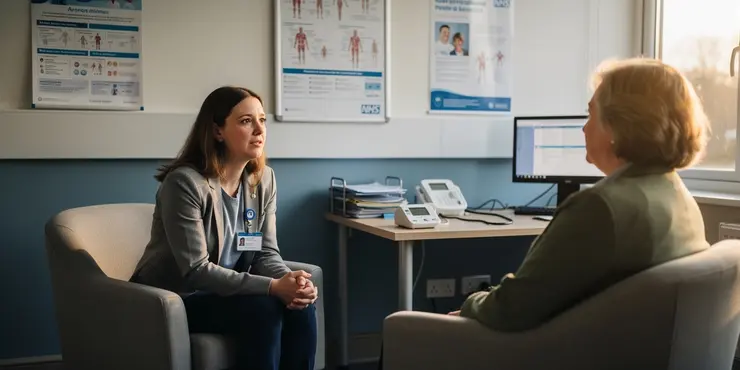
How does dementia progress over time?
Relevance: 48%
-
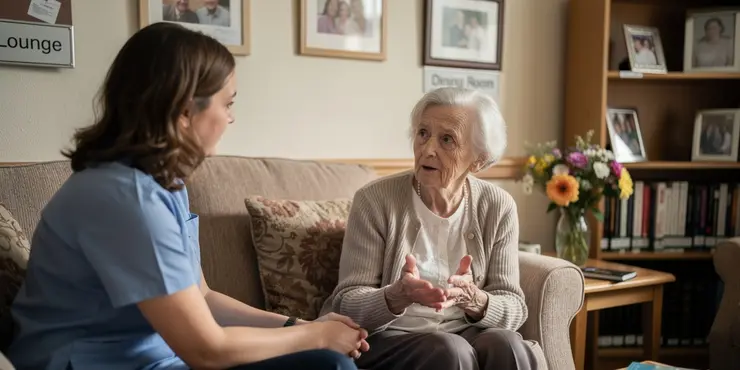
The role of care homes dedicated to caring for people living with dementia and memory loss
Relevance: 48%
-
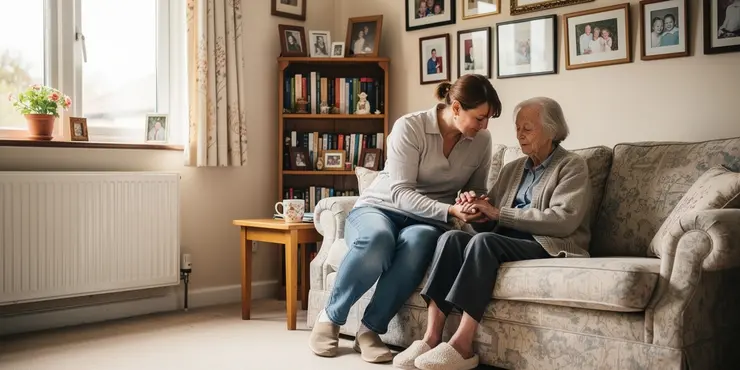
What role do carers play for those living with dementia?
Relevance: 47%
-
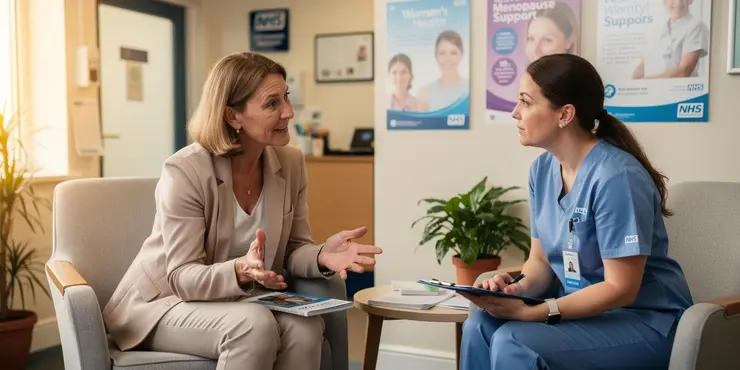
What are the links between menopause and dementia?
Relevance: 47%
-
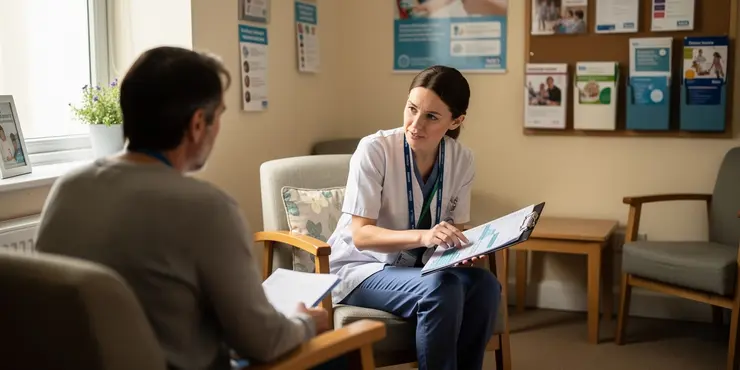
Getting help and support with frontotemporal dementia (FTD) (part 2/3)
Relevance: 47%
-
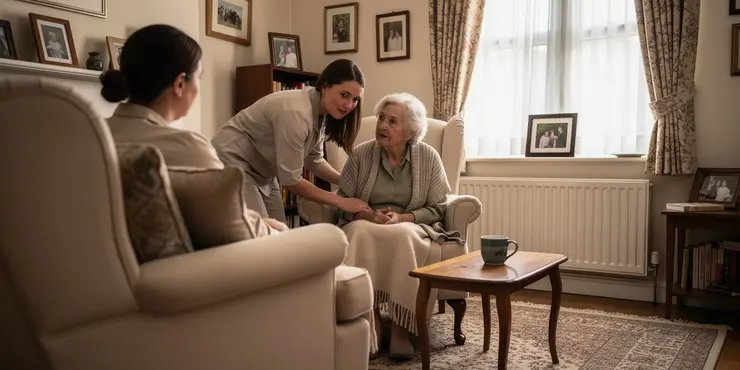
Living with changes in behaviour in frontotemporal dementia (FTD) (part 3/3)
Relevance: 47%
-
Are there specific types of dementia linked to menopause?
Relevance: 47%
-
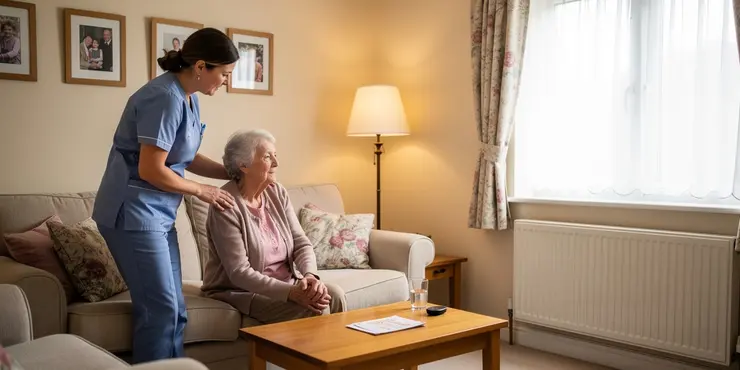
What financial support is available for people with dementia?
Relevance: 46%
-
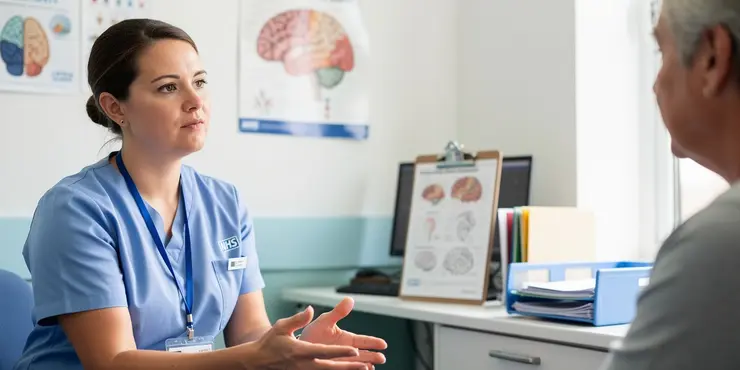
An introduction to frontotemporal dementia (FTD) (part 1/3)
Relevance: 46%
-
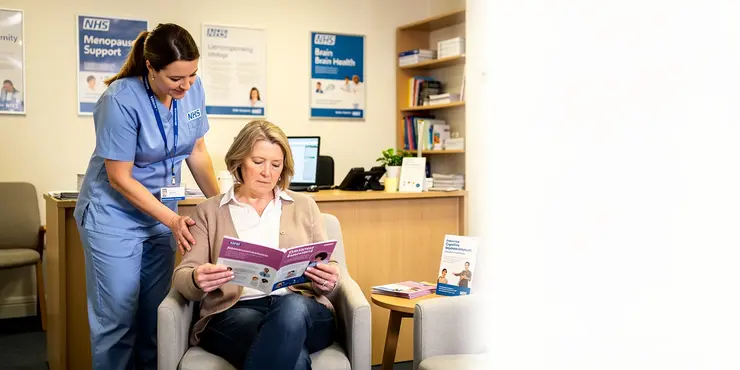
Is there scientific evidence linking menopause to dementia?
Relevance: 45%
-
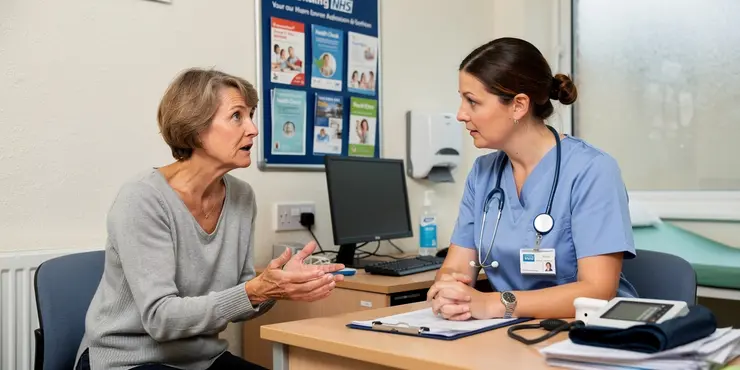
How common is it for women to develop dementia after menopause?
Relevance: 45%
-
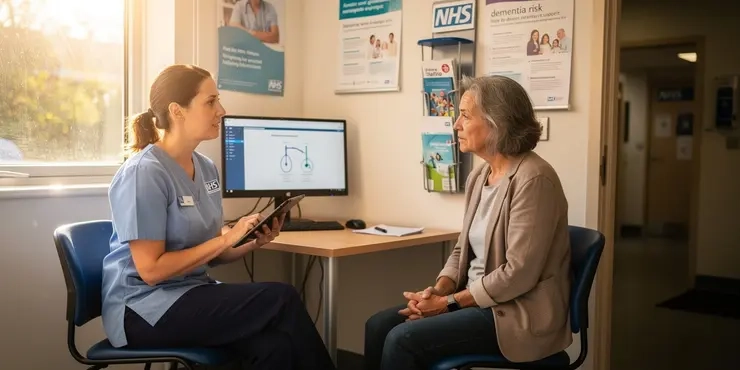
Do genetics play a role in dementia risk post-menopause?
Relevance: 43%
-
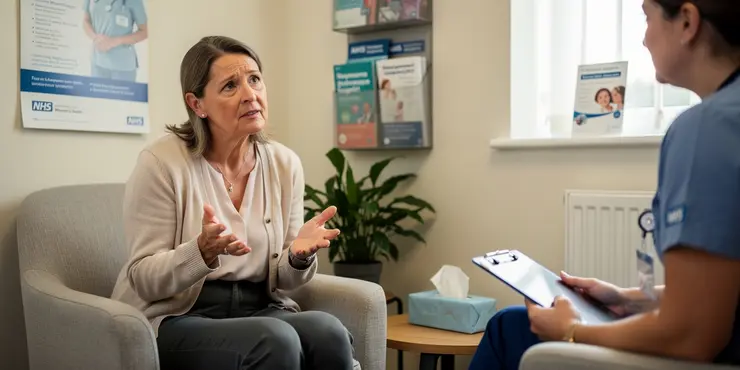
Is the age of menopause onset related to dementia risk?
Relevance: 43%
-
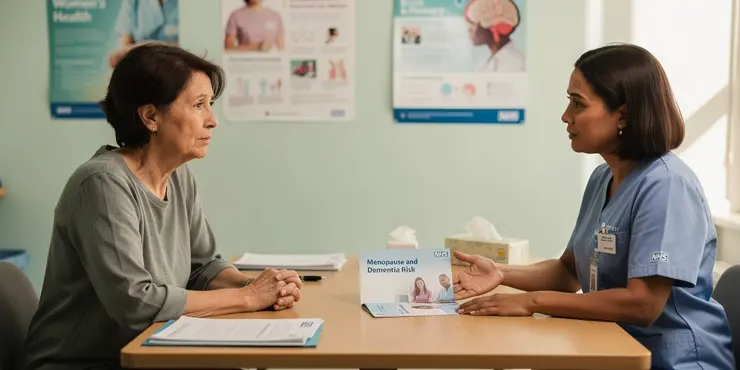
How does menopause potentially affect dementia risk?
Relevance: 43%
-
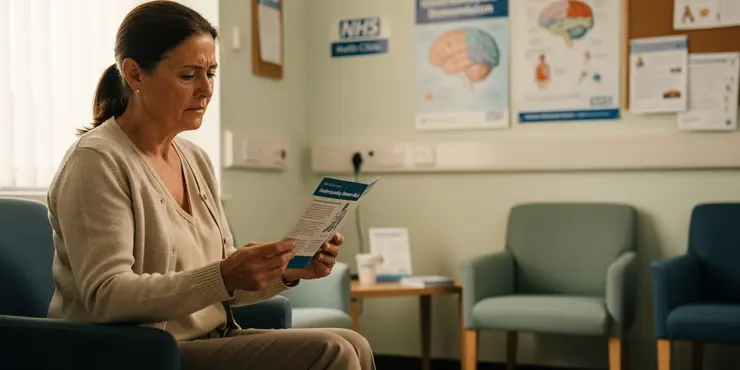
Do male and female brains age differently regarding dementia risk?
Relevance: 43%
-
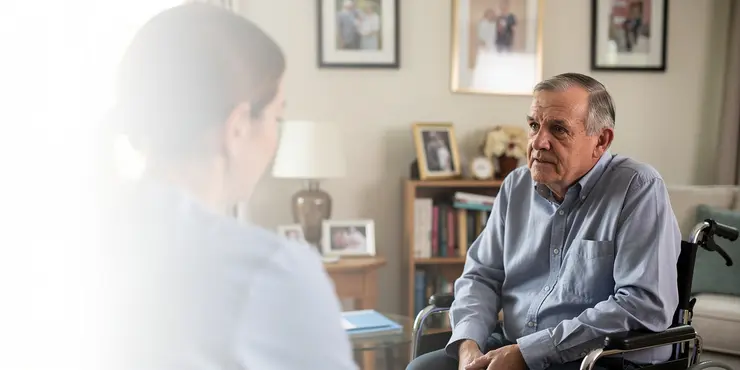
Are there support groups for individuals with motor neurone disease?
Relevance: 42%
-
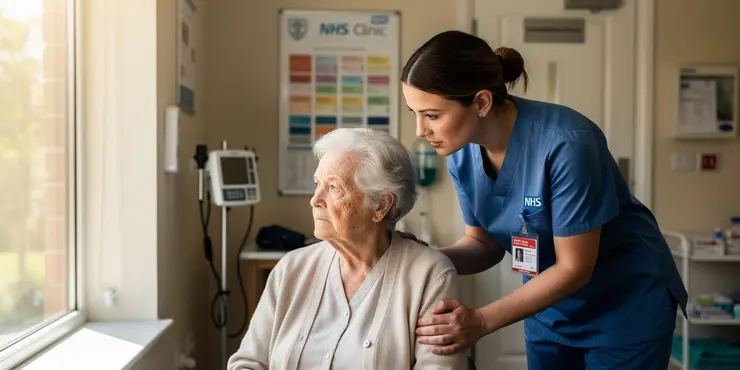
What is dementia?
Relevance: 42%
-

Can lifestyle changes during menopause help reduce dementia risk?
Relevance: 42%
-
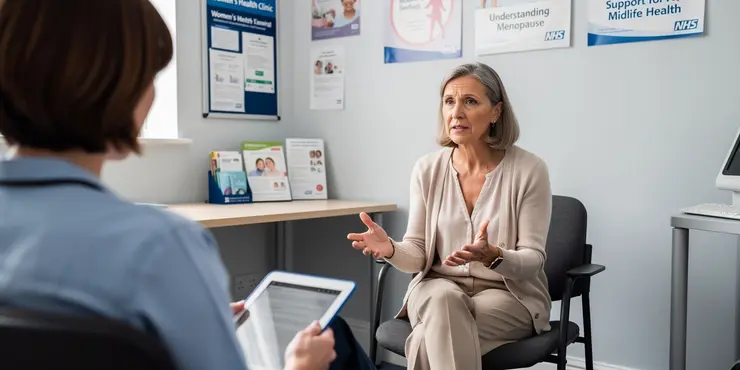
What further research is needed about menopause and dementia?
Relevance: 41%
-
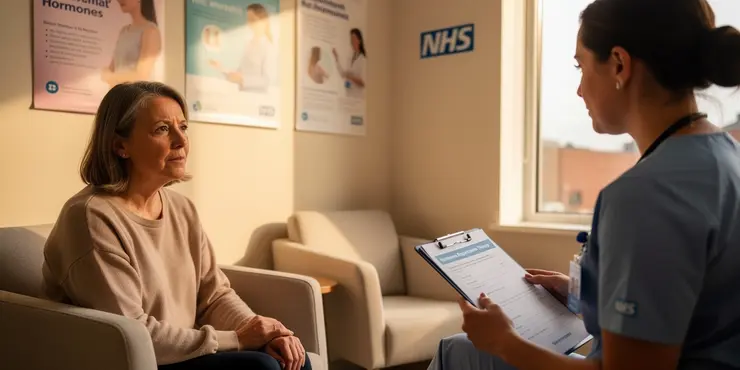
Can hormone replacement therapy (HRT) impact dementia risk?
Relevance: 41%
-
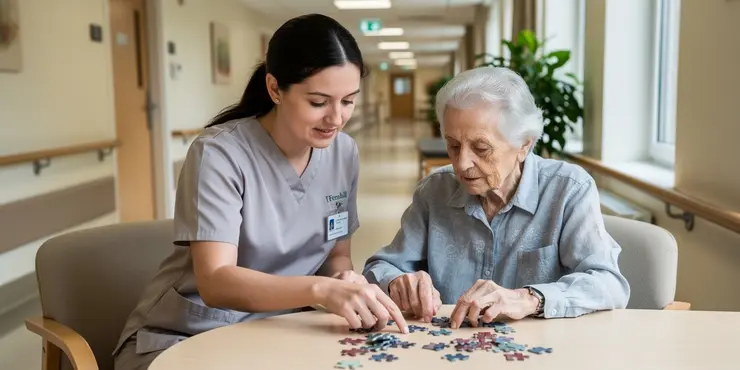
Fernhill Dedicated Dementia Care Home - a relatives perspective
Relevance: 41%
-
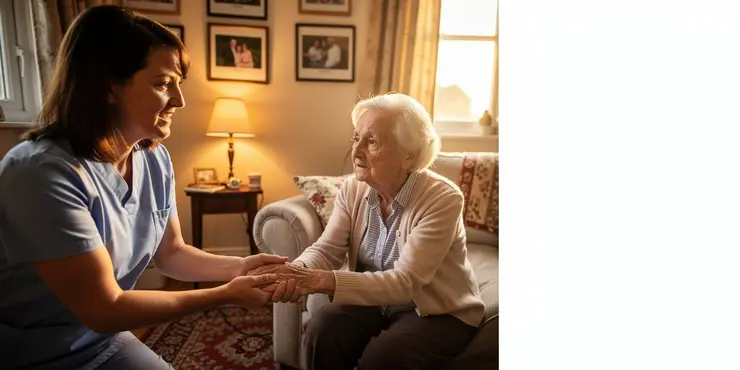
What support is available for carers of Alzheimer's patients?
Relevance: 41%
Support Groups for People with Dementia in the UK
The UK offers a variety of support groups and services for individuals living with dementia and their caregivers. These groups provide essential assistance, education, and a sense of community to those affected by this challenging condition. Participating in a support group can be an invaluable way to connect with others dealing with similar experiences, share insights, and receive emotional support.
Alzheimer's Society Support Groups
The Alzheimer's Society is the leading dementia support and research charity in the UK. They provide support groups for individuals affected by all forms of dementia. Their local groups offer a safe and understanding environment for people with dementia to share their experiences and discuss coping strategies. Additionally, the Alzheimer's Society runs the Dementia Connect support line, which is available for those needing immediate advice and guidance.
Age UK Support Services
Age UK is another prominent organisation offering support for older people, including those living with dementia. They offer a range of support services, including local activity groups, befriending services, and information hubs that help connect people with dementia and their carers to the necessary resources. These services aim to promote independence, reduce isolation, and improve the quality of life for those living with the condition.
Carers UK
Carers UK focuses on providing support to caregivers, including those caring for individuals with dementia. They offer online forums where carers can share experiences and advice. Carers UK also provides detailed guides on caring for someone with dementia, legal rights, and accessing financial support. The organisation campaigns for better rights and recognition for carers across the UK.
Online Support Groups
For those unable to attend in-person meetings or who prefer the convenience of online interactions, several online support groups are available. Websites like Dementia Talking Point, run by the Alzheimer's Society, offer forums where individuals can connect, share stories, and seek advice. These virtual communities provide a valuable resource for people who may feel isolated or require flexible support options.
Specialist Dementia Groups
In addition to the large national organisations, there are numerous regional and local charities and groups that specialise in dementia support. These groups often focus on specific needs, such as early-onset dementia or providing culturally sensitive support for individuals from diverse backgrounds. By catering to particular communities, these groups help ensure that a wider range of people can access the help they need.
Conclusion
In the UK, there are numerous support groups and services available for individuals living with dementia and their carers. From national charities like the Alzheimer's Society and Age UK to specialised local groups, these resources provide crucial support networks. Whether seeking face-to-face interaction or online communities, help is accessible for those affected by dementia to improve their quality of life and ensure they are not facing this journey alone.
Support Groups for People with Dementia in the UK
In the UK, there are many support groups for people who have dementia and their caregivers. These groups help by giving support, sharing information, and creating a community. Joining a support group can be a great way to meet others who understand what you're going through, share ideas, and get support from friends.
Alzheimer's Society Support Groups
The Alzheimer's Society is a big charity that supports people with all types of dementia in the UK. They have local groups where people with dementia can feel safe, share their stories, and talk about ways to cope. The Alzheimer's Society also has a phone helpline called Dementia Connect for anyone who needs quick advice and support.
Age UK Support Services
Age UK is another important group that helps older people, including those with dementia. They have different services like local activity groups, visiting services, and places to find useful information. These services aim to help people with dementia live independently, feel less alone, and have a better quality of life.
Carers UK
Carers UK helps people who take care of others, including those who care for someone with dementia. They have online forums where carers can talk and give each other advice. Carers UK also gives guides about how to care for someone with dementia, your legal rights, and getting money support. They work to make things better for carers across the UK.
Online Support Groups
If you cannot go to meetings in person or like being online, there are online support groups too. Websites like Dementia Talking Point, by the Alzheimer's Society, have forums where you can meet people, share experiences, and ask for help. These online groups are excellent for people who might feel lonely or need flexible support.
Specialist Dementia Groups
Besides the big organisations, there are also many small regional and local groups that focus on dementia support. Some groups cater to particular needs, like early-onset dementia or cultural support for different backgrounds. These groups make sure that everyone can find the help they need.
Conclusion
In the UK, there are many support groups and services for people with dementia and their caregivers. They range from national charities like the Alzheimer's Society and Age UK to small local groups. These groups provide essential support to improve the lives of people with dementia. Whether you prefer meeting in person or online, help is available to ensure no one faces dementia alone.
Frequently Asked Questions
What are dementia support groups?
Dementia support groups are gatherings where individuals with dementia, their caregivers, and family members can share experiences, resources, and support with each other.
Are there any dementia support groups available in the UK?
Yes, there are many support groups for people with dementia and their carers across the UK, organized by various charities and healthcare organizations.
How can I find a dementia support group in my area?
You can find a dementia support group by contacting organizations such as Alzheimer's Society, Dementia UK, or local community centers.
Are dementia support group meetings free to attend?
Many dementia support groups are free to attend, although some may ask for a small donation to cover costs. It is best to check with the specific group.
Can dementia support groups help caregivers as well?
Yes, dementia support groups often provide support and resources for caregivers, helping them manage the challenges of caring for someone with dementia.
Do I need a referral to join a dementia support group?
Most dementia support groups do not require a referral, but it is a good idea to contact the group beforehand to find out about any specific requirements.
How often do dementia support groups meet?
The frequency of meetings varies by group. Some meet weekly, while others may meet monthly or bi-monthly. Check with local groups for their schedules.
Are there virtual support groups for dementia in the UK?
Yes, many organizations offer virtual support groups and online forums due to the increased need for remote support options.
What types of activities are involved in dementia support group meetings?
Activities can include support discussions, talks from experts, social activities, and access to informational resources.
Can I bring a family member or friend to a support group meeting?
Yes, many support groups encourage bringing family members or friends for additional support.
Are there specific support groups for early-onset dementia?
Yes, some support groups focus specifically on early-onset dementia, providing targeted resources and discussions for younger individuals with the condition.
Do dementia support groups provide medical advice?
Support groups are primarily for emotional and social support and information sharing. Medical advice should be sought from healthcare professionals.
How do dementia support groups help those affected by the condition?
Support groups provide a sense of community, reduce feelings of isolation, and offer practical advice and strategies for coping with the condition.
Can I start my own dementia support group?
Yes, with some planning and guidance from established organizations, you can start your own dementia support group in your community.
Are there support groups specifically for carers of dementia patients?
Yes, many support groups focus specifically on supporting carers, providing them with resources and a network of peers.
Do support groups offer educational resources?
Yes, many support groups provide educational resources and may host guest speakers to discuss topics related to dementia care.
Can support groups assist with legal and financial concerns related to dementia?
While they primarily offer social and emotional support, some groups may provide information or refer attendees to professionals for legal and financial advice.
Are there any national organizations in the UK that provide dementia support?
Yes, organizations like Alzheimer's Society and Dementia UK offer extensive resources and support groups across the nation.
What should I expect when attending my first dementia support group meeting?
Expect a welcoming atmosphere where you can share your experiences and seek support. Meetings typically involve open discussions and resource sharing.
How do dementia support groups support mental health?
By providing a community and a space to share experiences, support groups can alleviate stress, reduce isolation, and improve mental well-being.
What are dementia support groups?
Dementia support groups are meetings where people can talk about dementia. These groups help people who have dementia and their families.
In these meetings, people can:
- Share their feelings
- Learn new things
- Support each other
If you know someone with dementia, a support group can help them feel better.
Dementia support groups are meetings where people with dementia, their helpers, and family members can talk to each other. They can share stories, helpful things, and give support to one another.
Can I find groups in the UK that help people with dementia?
Yes, there are lots of groups to help people with dementia and their carers all over the UK. These groups are run by charities and health care organizations.
How can I find a dementia support group near me?
Do you want to find a group that helps people with dementia close to where you live? These groups can give help and support.
Here is how you can find one:
- Ask your doctor for advice. They might know a support group for you.
- You can go online and search for "dementia support group near me" on your computer or phone.
- Call local hospitals or community centers. They often have information about support groups.
If reading is hard, you can ask a friend or family member to help you find a group. You can also use voice search tools to look for groups online by speaking instead of typing.
You can find a group to help with dementia by calling places like Alzheimer's Society, Dementia UK, or your local community centers.
Do dementia support group meetings cost money?
Support group meetings for dementia are usually free. You can join without paying. If you're unsure, ask the group organizer.
Using a calendar can help you remember meeting days. You might also want to bring a notepad to write down important things.
Many dementia support groups do not cost money to join. Some groups might ask you to give a little money to help pay for things. It is a good idea to ask the group about this.
Can dementia support groups help people who take care of someone with dementia too?
Yes, there are groups that help with dementia. They give support to people who take care of someone with dementia. They help them handle any hard parts of taking care of someone.
Do I need a note from a doctor to join a dementia support group?
Most groups that help people with dementia do not need a note from a doctor. But it is a good idea to call the group first to see if they need anything special.
How often do dementia support groups meet?
Dementia support groups usually meet at different times. They might meet every week or every month. It depends on the group.
If you need help remembering when the group meets, you can use a calendar. A phone reminder can also help you remember.
How often groups meet can be different. Some groups meet every week. Other groups might meet once a month or every two months. Ask local groups when they meet.
Can I join online groups for dementia help in the UK?
Yes, there are online groups where people can talk and help each other with dementia. These groups are safe places to share feelings and get advice.
Here are some ways they can help you:
- You can talk to other people who understand what you're going through.
- You can get tips and ideas to make things easier.
- You can feel less alone by being part of a group.
To find these online groups, you can:
- Use the Internet to search for "dementia online support UK".
- Ask a friend or family member to help you look online.
- Speak to your doctor about any groups they know.
Using tools like a simple dictionary can help you understand tricky words.
Yes, many places now have online support groups and forums. These are because more people need help from home.
What do people do in dementia support group meetings?
In dementia support groups, people do different activities to help each other. Here are some things they might do:
- Talking and Sharing: People talk about how they feel and share their stories.
- Learning: People can learn more about dementia and how to help.
- Fun Activities: They might play games or do crafts to have fun together.
- Relaxation: There are activities to help people feel calm, like listening to music.
If you find reading hard, you can ask someone to read with you. You can also use audiobooks or apps to help you understand better.
You can do different things like talk with others for support, listen to experts, join fun group activities, and get helpful information.
Can I take my family or friend to a support group meeting?
Yes, lots of support groups say it's okay to bring family or friends. They can help you feel better.
Are there special groups for people with early-onset dementia?
Yes, there are special groups that help people who have early-onset dementia. These groups can also help families and friends. They talk and share ideas. They give support and advice. You can find these groups by talking to a doctor, looking online, or asking local community centers. Using a calendar or reminder app can also help people stay organized.
Yes, there are support groups for people who get dementia when they are younger. These groups give special help and talk about things that are important for younger people with dementia.
Do dementia support groups give medical advice?
Dementia support groups are places where people can talk and share stories. They help each other feel better. But they do not give medical advice like doctors do.
If you need medical advice, it's best to talk to a doctor or nurse. They can give you the right help and answers.
Sometimes, people in support groups can share tips on where to get help or how to feel better. But remember, always check with a doctor for medical advice.
If you find reading hard, you can use tools like listening to audiobooks or asking someone to read with you. These can make things easier.
Support groups help people share feelings, make friends, and learn new things. For medical advice, always talk to a doctor.
How can dementia support groups help people?
Dementia support groups are places where people can go to meet others. They are for people who have dementia or know someone with dementia.
These groups can help by:
- Letting people talk about their feelings
- Sharing tips and advice
- Making new friends
- Learning from others
Some tools that can help include:
- Writing things down in a notebook
- Using simple apps on a phone
- Talking to a helper or carer
Support groups help people feel they are not alone. They give advice and tips to make things easier.
Can I make my own group to help people with dementia?
Yes, you can start a support group for people with dementia in your area. You will need to plan a bit and get help from experienced groups.
Is there help for people who take care of someone with dementia?
Yes, there are groups that can help.
- These groups are called "support groups."
- They help people who look after someone with dementia.
- You can meet other people who understand what you are going through.
- You can share stories and get advice.
You can ask a doctor or nurse to help you find a group.
You can also look online for groups near you.
Yes, there are many groups that help carers. These groups give carers support, helpful tools, and friends they can talk to.
Do support groups help you learn new things?
Support groups can help you learn. They might give you books, videos, or websites. These can help you understand more. You can also talk to other people in the group to learn from them.
If reading is hard for you, try these tips:
- Ask someone you trust to read with you.
- Use audiobooks to listen instead of reading.
- Use a reading app to help you understand words better.
Yes, there are many groups that can help. They give out information to help you. Sometimes, they have special speakers who talk about dementia care.
Can support groups help with legal and money problems if you have dementia?
Support groups can be very helpful. They can give advice and share ideas.
These groups often have people who understand dementia. They may know about legal issues and money matters too.
You can also use tools like online guides. They can help explain things in simple words.
Having someone to talk to can make it easier to understand what to do next.
These groups help people feel better and make friends. Some groups also share helpful information or tell people where to get advice from experts about the law or money.
Are there groups in the UK that help people with dementia?
Yes, groups like Alzheimer's Society and Dementia UK can help a lot. They have many resources and support groups all over the country.
What will happen at my first dementia support group meeting?
Here is what you might see and do at a dementia support group meeting.
1. Meet new people: You will meet other people who care for someone with dementia.
2. Share stories: People will talk about their experiences. You can share too, if you want.
3. Learn from others: You will get tips on how to help your loved one with dementia.
4. Ask questions: Feel free to ask anything you are unsure about.
5. Feel supported: Everyone is there to help each other.
Here are some tips to help:
- Bring a notebook to write down helpful ideas.
- You can bring a friend for support.
- Listen carefully and be open to advice.
- Take deep breaths if you feel nervous.
Welcome! You will find friendly people here. You can talk about your feelings and get help. In meetings, people talk and share helpful things.
How do dementia support groups help people feel better?
Support groups help people feel better. They bring people together so they can share their stories. This can help reduce stress, make people feel less alone, and make their minds healthier.
Useful Links
This website offers general information and is not a substitute for professional advice.
Always seek guidance from qualified professionals.
If you have any medical concerns or need urgent help, contact a healthcare professional or emergency services immediately.
Some of this content was generated with AI assistance. We’ve done our best to keep it accurate, helpful, and human-friendly.
- Ergsy carfully checks the information in the videos we provide here.
- Videos shown by Youtube after a video has completed, have NOT been reviewed by ERGSY.
- To view, click the arrow in centre of video.
- Most of the videos you find here will have subtitles and/or closed captions available.
- You may need to turn these on, and choose your preferred language.
- Go to the video you'd like to watch.
- If closed captions (CC) are available, settings will be visible on the bottom right of the video player.
- To turn on Captions, click settings .
- To turn off Captions, click settings again.
More Items From Ergsy search
-

Are there any support groups for people with dementia in the UK?
Relevance: 100%
-

Can live-in care support individuals with dementia?
Relevance: 62%
-
Living with dementia | NHS
Relevance: 61%
-

Are there support groups for postnatal depression?
Relevance: 58%
-

What is dementia?
Relevance: 58%
-

Is there a cure for dementia?
Relevance: 58%
-

Can dementia affect younger people?
Relevance: 56%
-
Are there any support groups for people with dementia in the UK?
Relevance: 56%
-
Are there any support groups for people with dementia in the UK?
Relevance: 56%
-

Are there support groups for those affected by testicular cancer?
Relevance: 53%
-

What are peer support groups for community helpers?
Relevance: 53%
-

Early onset dementia | NHS
Relevance: 53%
-

Dementia by Dr Alex Kakoullis, Coventry and Warwickshire Partnership NHS Trust
Relevance: 51%
-

Dementia Care at Colten Care
Relevance: 50%
-

How can I support a loved one with dementia?
Relevance: 49%
-

How is dementia diagnosed?
Relevance: 49%
-

How can I find NHS-recommended menopause support groups online?
Relevance: 48%
-

How can support groups benefit carers of Alzheimer's patients?
Relevance: 48%
-

How does dementia progress over time?
Relevance: 48%
-

The role of care homes dedicated to caring for people living with dementia and memory loss
Relevance: 48%
-

What role do carers play for those living with dementia?
Relevance: 47%
-

What are the links between menopause and dementia?
Relevance: 47%
-

Getting help and support with frontotemporal dementia (FTD) (part 2/3)
Relevance: 47%
-

Living with changes in behaviour in frontotemporal dementia (FTD) (part 3/3)
Relevance: 47%
-
Are there specific types of dementia linked to menopause?
Relevance: 47%
-

What financial support is available for people with dementia?
Relevance: 46%
-

An introduction to frontotemporal dementia (FTD) (part 1/3)
Relevance: 46%
-

Is there scientific evidence linking menopause to dementia?
Relevance: 45%
-

How common is it for women to develop dementia after menopause?
Relevance: 45%
-

Do genetics play a role in dementia risk post-menopause?
Relevance: 43%
-

Is the age of menopause onset related to dementia risk?
Relevance: 43%
-

How does menopause potentially affect dementia risk?
Relevance: 43%
-

Do male and female brains age differently regarding dementia risk?
Relevance: 43%
-

Are there support groups for individuals with motor neurone disease?
Relevance: 42%
-

What is dementia?
Relevance: 42%
-

Can lifestyle changes during menopause help reduce dementia risk?
Relevance: 42%
-

What further research is needed about menopause and dementia?
Relevance: 41%
-

Can hormone replacement therapy (HRT) impact dementia risk?
Relevance: 41%
-

Fernhill Dedicated Dementia Care Home - a relatives perspective
Relevance: 41%
-

What support is available for carers of Alzheimer's patients?
Relevance: 41%


